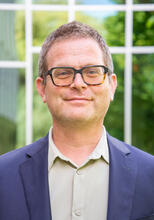“Now” is never just a moment. The Long Now is the recognition that the precise moment you’re in grows out of the past and is a seed for the future. The longer your sense of Now, the more past and future it includes.
—Brian Eno, in The Big Here and Long Now
 In the 2019 case of Mathur et al. v. Ontario, a group of young people sued the government of Ontario for its cancellation of a provincial carbon-trading law. These youth stated that the government’s inaction on carbon emissions meant that they (and, importantly, future generations) would face the future hardship of a warming climate, long after the those who had created the problem were gone. The youth argued that this was age-based discrimination and a threat to “security of the person”—both prohibited under the Canadian Charter of Rights and Freedoms.
In the 2019 case of Mathur et al. v. Ontario, a group of young people sued the government of Ontario for its cancellation of a provincial carbon-trading law. These youth stated that the government’s inaction on carbon emissions meant that they (and, importantly, future generations) would face the future hardship of a warming climate, long after the those who had created the problem were gone. The youth argued that this was age-based discrimination and a threat to “security of the person”—both prohibited under the Canadian Charter of Rights and Freedoms.
The government of Ontario filed a motion to dismiss the claim before it could proceed to trial arguing (among other points) that the youth did not have standing to represent people in the future. But the Ontario Superior Court agreed with the youth, and decided that a lawsuit on behalf of future generations could not easily be dismissed.
The idea that future generations can make claims in the present is a radical idea in Canadian law. But it is an old concept in many traditional cultures and religions. Long ago, the Haudenosaunee adopted the principle that decisions made today must respect the well-being of people seven generations into the future. The corollary idea is found in the Torah: future generations inevitably bear the punishing consequences of present-day bad behavior.
In a famous essay, the musician Brian Eno argued that in order to live well into the future, humanity needs to develop a greater sense of “the Long Now”—that is, our deep connection in the present to the past and to the future.
When it comes to Grebel’s responsibility for a sustainable environment, there is a long (and expensive) to-do list. An engineering firm just completed an environmental audit of our campus. They have suggested dozens of ways we can reduce our carbon footprint and other environmental impacts—ideas that range from replacing residence windows, to upgraded heating and cooling systems, to smart thermostats, to solar panels. The list is long, but we know that future generations demand that we work at it. Present generations of alumni and students certainly expect us to act, and they have the expertise to help us. One of our alumni led the environmental audit.
But I think that our responsibilities extend well beyond upgrades to our buildings. We are also called to foster a sense of the Long Now in our students. We already do this at Grebel—though perhaps we have not thought about it in these terms. Joining an enduring community, considering values that extend beyond oneself, exploring a faith tradition, connecting to history—all of these things enable our students to imagine a longer Now. In this issue of Grebel Now, the profiles of alumni and students who are working on environmental concerns provides the proof of this concept. When our students connect that long sense of Now to whatever they study here, they can discover vocations and callings that contribute to a sustainable future for coming generations.





